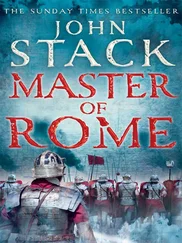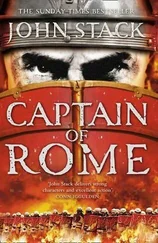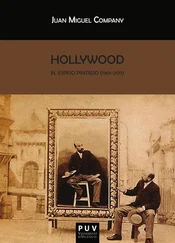Scipio was not sure exactly how long he had been in the hold but he estimated it had been at least two weeks. The hatchway above him had opened intermittently during that time, his captors giving him stale bread and brackish water, their offering always accompanied by an insulting remark spoken in their incomprehensible language. During the first week Scipio had done his best to present an outward display of indifference to his predicament, not wanting to give his captors the satisfaction of knowing how much he was suffering. The act had produced a brutal response on two occasions, the second a blow to the head that had knocked him unconscious. The second week had marked the onset of a pervasive fear, a feeling that he would be left to die in the hold, and it was then that all trace of real defiance had fled. As the drum from the slave deck above him continued its unending beat, Scipio felt the final vestiges of his resolve begin to dissipate in the darkness engulfing him.
Hannibal Gisco walked down the length of the rowing deck towards the guarded hatchway that led to the lower hold. He moved silently, his eyes ranging over the rows of chained galley slaves. As the taskmasters patrolling the deck became aware of Gisco’s presence, they intensified their whip lashes on the backs of the rowers. Their increased barbarity was not born from zeal but from fear. Gisco noted the change and smiled inwardly to himself. He had been surprised to learn that the Romans used their own sailors as taskmasters on the slave deck. Years before, Gisco had ordered the position filled by slaves taken from the ranks of the rowers themselves.
Gisco’s method meant that from the moment those chosen picked up the whip and delivered their first lash, they became enemies of their fellow slaves. Any sign that a taskmaster was sparing his former companions from the lash was instantly punishable by returning that slave to the ranks of the rowers. Once back amongst those men, the former taskmaster’s life was measured in hours, their death normally occurring during their first relief break when, along with the men they had recently whipped, they were confined out of sight in the hold beneath the rowing deck. The move had immeasurably enhanced the effectiveness of the taskmasters, causing them to become vicious, almost inhuman in their ferocity, the fear that they might be seen as lenient intensifying their brutality.
Gisco stopped as he came to the hatchway. The soldier posted there saluted and stepped back.
‘Find two more men,’ Gisco ordered, and the soldier departed.
As the admiral waited, he replayed the information he had already stored in his head. Over the past two weeks, the eighteen Roman captains who had survived the ambush had been systematically tortured for intelligence regarding the new fleet. Some had been tougher than others, some more informed, but all had eventually revealed some fragment of the overall strategy.
The Romans were planning to build one hundred and fifty ships, all of the same class as those taken at Lipara. The initial twenty were now either destroyed or in Carthaginian hands, which meant the bulk of the fleet was yet to be deployed. The timing of their deployment was still unknown but could be readily estimated by the speed at which the Romans had built the initial twenty. When Gisco first heard the reported construction time, he had not believed it. He had personally supervised the interrogation of three captains to confirm the report. The first twenty had been built in a little over two weeks and, on the day they sailed, fifty more keels were being laid down. Given that nearly all the reports stated that Rome was constantly increasing the rate of construction, it was reasonable to assume the fleet was near to completion.
Gisco was also sure that the Romans knew the full details of the trap laid for them at Lipara. His guard commander, Cronus, and the traitor Demades had not returned from Rome. Demades had betrayed him. Before leaving Lipara, Gisco had fulfilled his promise and had put the councillor’s family to the sword, but not before the three women had spent a long night in the company of the garrison soldiers.
The only remaining piece of the puzzle was the man who would command the Roman fleet. Many of the captains had spoken of a Roman named Gaius Duilius, the junior consul, as being next in line to command. None of the captains knew anything of the man himself, his background or his abilities. Gisco was sure, however, that the man beneath his feet, the senior consul of Rome, would have the personal information he required to get the measure of the man he would soon face in battle.
The hatchway above Scipio opened suddenly. Rough hands reached down and hauled him up onto the rowing deck of the galley. His legs cramped as he straightened them and he gritted his teeth against the pain. The light was muted below deck but, after the pitch-darkness of the lower hold, Scipio shielded his eyes against its intensity. His hands were instantly pulled down and held behind him.
Scipio looked up to see the face of the Carthaginian commander, the same man he had met in battle on the aft-deck of the Mars. Scipio was immediately aware of the contrast between them. The Carthaginian stood tall and proud, his gaze fierce and confident. Scipio, by contrast, could only mimic those same qualities. His toga was filthy and clung to his flesh, his posture stooped and pathetic. Scipio tried to draw himself to his full height but his legs cramped again and so he set his own expression into what he believed was hardened defiance as he looked up at his captor.
The Carthaginian smiled and walked away, the guards forcing Scipio to follow through a series of narrow companionways to the main cabin at the stern of the ship. Once there the Carthaginian commander sat down behind a central desk.
‘Remove his toga!’ Gisco ordered, his face expressing his disgust at the filth of the robes.
Again Scipio was manhandled roughly as his toga was removed, his tunic underneath equally filthy.
‘Leave us,’ Gisco commanded the guards.
The two adversaries were left alone.
‘I demand to be treated in accordance with my rank,’ Scipio said, trying to establish a level of arrogance he did not feel.
‘ Vae victis: “Woe to the vanquished”,’ Gisco spat, evoking the retort of a Gaulish commander, who had used the phrase more than a hundred years earlier after sacking the city of Rome.
‘Sit down, Roman.’
Scipio tried to stand firm.
‘Sit down or I will have my men take you back to the hold.’
Scipio flinched at the threat, the thought of returning to the pitch-dark prison sending a spasm through his intestines. He sat down quickly.
Gisco noted the reaction, disgusted at the outward show of fear in one who claimed to be the leader of Rome.
‘My name is Hannibal Gisco. I am the overall commander of the Carthaginian forces fighting to free Sicily from Roman tyranny.’
Scipio bit back an instinctive retort, not wanting to antagonize his enemy.
‘I have “spoken” with the captains of your fleet,’ Gisco began. ‘It seems their loyalty did not extend beyond saving their own lives. They were very willing to divulge every detail of your new fleet. Its size, complement, class of ship.’
Scipio tried to maintain an expression of indifference, but the Carthaginian’s words caused a latent anger to rise within him. I have been betrayed by everyone, he thought bitterly.
‘There is just one final piece of information I need you to confirm, Roman,’ Gisco added.
‘I will not betray my city,’ Scipio answered feebly, trying to make his voice sound bold and confident. Even in his own ears he heard the hollowness of his words.
Gisco laughed.
‘Enough Romans have already done that,’ he said dismissively. ‘I simply want you to tell me about the man who will command the Roman fleet.’
Читать дальше
Конец ознакомительного отрывка
Купить книгу











